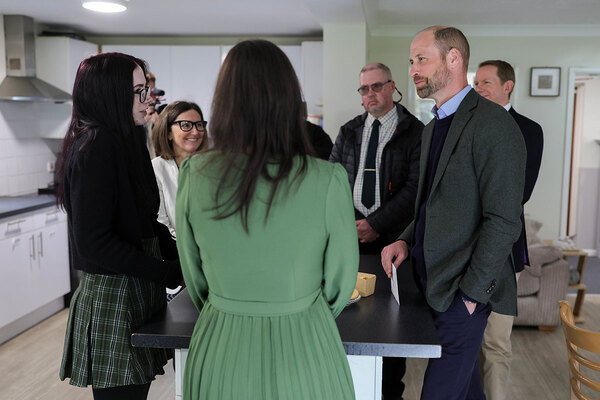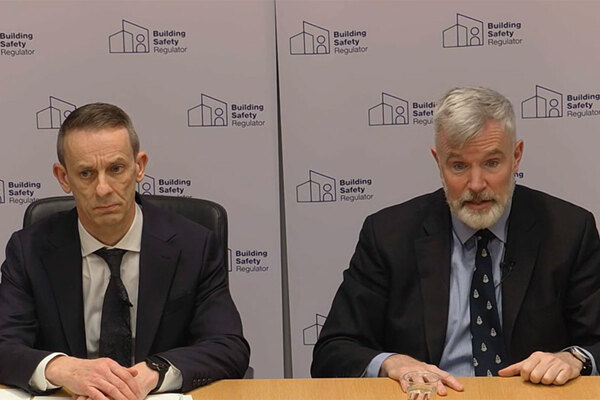You are viewing 1 of your 1 free articles
New satisfaction measures not suitable for people with disabilities, says specialist provider
A manager at a specialist housing association has said the new tenant satisfaction measures (TSMs) are not accessible for residents with complex needs or disabilities.
Rachel Fox, customer engagement manager at Advance, said there are concerns at the organisation that the TSMs in their current form are not accessible enough, with no easy-read format for the questions available.
She questioned how useful the collected data will be when “a big chunk” of residents cannot engage with the survey.
As part of its new powers and focus on consumer regulation, the Regulator of Social Housing (RSH) created 22 TSMs, which were finalised and published in September.
The TSMs started being collected on 1 April 2023 through tenant perception surveys and landlord data. These cover five main themes, including repairs, building safety, effective complaint-handling, respectful and helpful tenant engagement, and responsible neighbourhood management.
Of the total TSMs, 10 must be answered by social landlords, with the remaining 12 perception questions to be answered by tenants.
The RSH published an easy-read guide for the final TSMs, which explained why they data on these are being collected and the meaning of words and phrases, such as anti-social behaviour.
However, landlords must ask exactly the same set of questions to tenants, as the regulator said this is to ensure the results between them are comparable.
Advance, which provides housing and support for people with long-term disabilities, learning disabilities and mental health conditions across the Midlands, London, South East and South West, raised concerns about accessibility during the consultation on TSMs.
Ms Fox said it was “disappointing” those concerns were not taken on board, particularly as many Advance tenants prefer an easy-read format.
She added: “It really does present a challenge, and in the consultation we fed that back about the needs of people with different communication needs and how that might be adaptable.
“Even just having an official easy-read version that could go out instead so everyone was receiving roundabout the same thing.
“But unfortunately that wasn’t taken on board, which was quite disappointing.”
Ms Fox said there was also concern around some of the questions, for example on neighbourhood and communal areas, that by asking them the landlord could be raising residents’ expectations.
She explained that Advance has shared owners in blocks where the communal areas are not its responsibility, but the TSMs survey might lead tenants to believe that the association does have responsibility for them.
Ms Fox said: “Our biggest issue is around making it meaningful. And, for that, I think a one-size-fits-all doesn’t work for our customer group.
“And then you have to question how useful that data is then, if we’re not getting representative responses necessarily, because a big chunk of our customers can’t engage with the survey.
“And then when we respond to the feedback that we’ve got in the surveys, are we making the changes that are best for everybody?”
She added that it is not just specialist providers that the format will present a challenge to.
“There are plenty of people in general needs housing that have additional needs,” Ms Fox explained.
A spokesperson for the RSH said the TSMs will enable tenants to hold their landlords to account on a range of important issues, including repairs, safety checks and complaints.
They added: “To ensure that tenants can compare their landlord’s performance with others in the sector – and that we have strong and transparent data on which to assess them – landlords must ask their tenants the same TSM questions.
“Landlords are responsible for collecting this data and they must do so in the best way for their tenants.
“When carrying out the surveys, landlords must support their tenants and respond to their individual needs, including communication support where it is required.”
Ms Fox said it is “great” that the RSH has produced an easy-read guide to go with the TSMs, but landlords still cannot use the accessible wording in the survey itself.
“This means we’re asking people – who already have barriers to comprehension – to cross-reference documents instead of simply providing it in an accessible format in the first place.
“We believe that this will impact both people’s ability and willingness to complete the survey; as we all know the easier it is to do, the higher response rates,” she added.
Ms Fox said that Advance gets meaningful feedback by using other methods, such as visits to homes, informal conversations and transactional surveys.
Sign up for our regulation and legal newsletter
Already have an account? Click here to manage your newsletters
Related stories










